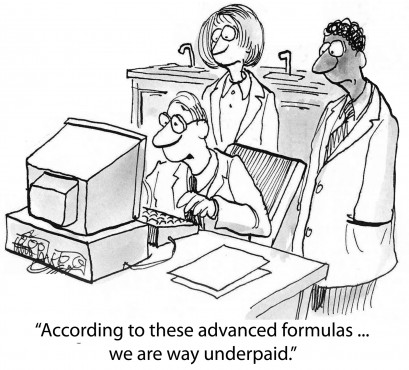Will Algorithms Soon Make All the Big HR Decisions?

But things are beginning to change: HR departments suddenly have competition, thanks to algorithms that can use big data to make decisions — decisions that were once reserved for HR.
This is a little ironic, because when big data exploded onto the HR scene a few years back, we expected it would help HR become more scientific and less subjective in its decision-making. We never thought it would replace HR altogether.
Well, we don’t yet have hiring robots to replace our HR departments, but we do have algorithms that can interpret big data to make HR decisions that are, in some cases, been superior to the decisions of flesh-and-blood HR people.
The best example of these algorithms in action can be found at Xerox : the company’s call-center hiring decisions are now made by an algorithm. Xerox developed an ideal candidate profile for call-center employees, and the algorithm analyzes candidates against this profile to make hiring decisions. The algorithm’s decisions have much higher levels of predictive accu
Aside from hiring decisions, algorithms are leading HR efforts in other arenas, too. For example, companies like Walmart, Credit Suisse, and Box Inc. now use algorithms to develop lists of “flight risks” — that is, people who are likely to leave their jobs soon.
This kind of early warning system has been taken in another direction by JPMorgan, which is working on a Minority Report -style algorithm that spots potential rogue traders before they actually go off the rails. Why wait for HR to uncover crime when computers can do it before a crime has even happened?
While Xerox and others have given their algorithms the reins, it seems that most companies are choosing to use big data to support HR, rather than supplant it all together. For example, take Google, one of the leaders in using big data and algorithms to support human decision-making. Google has developed both a hiring algorithm and a retention algorithm, but these algorithms are meant to help HR people make data-based decisions of their own; these algorithms don’t seem intended to replace HR — not yet, anyway.
Most companies probably use a similar “hybrid methods” today — that is, algorithms as support for HR people — but it’s not hard to imagine what the future could hold. Slowly, as algorithms grow more and more powerful and their predictions grow more accurate, we could see living, breathing HR people phased out of businesses completely.

It is inevitable.

